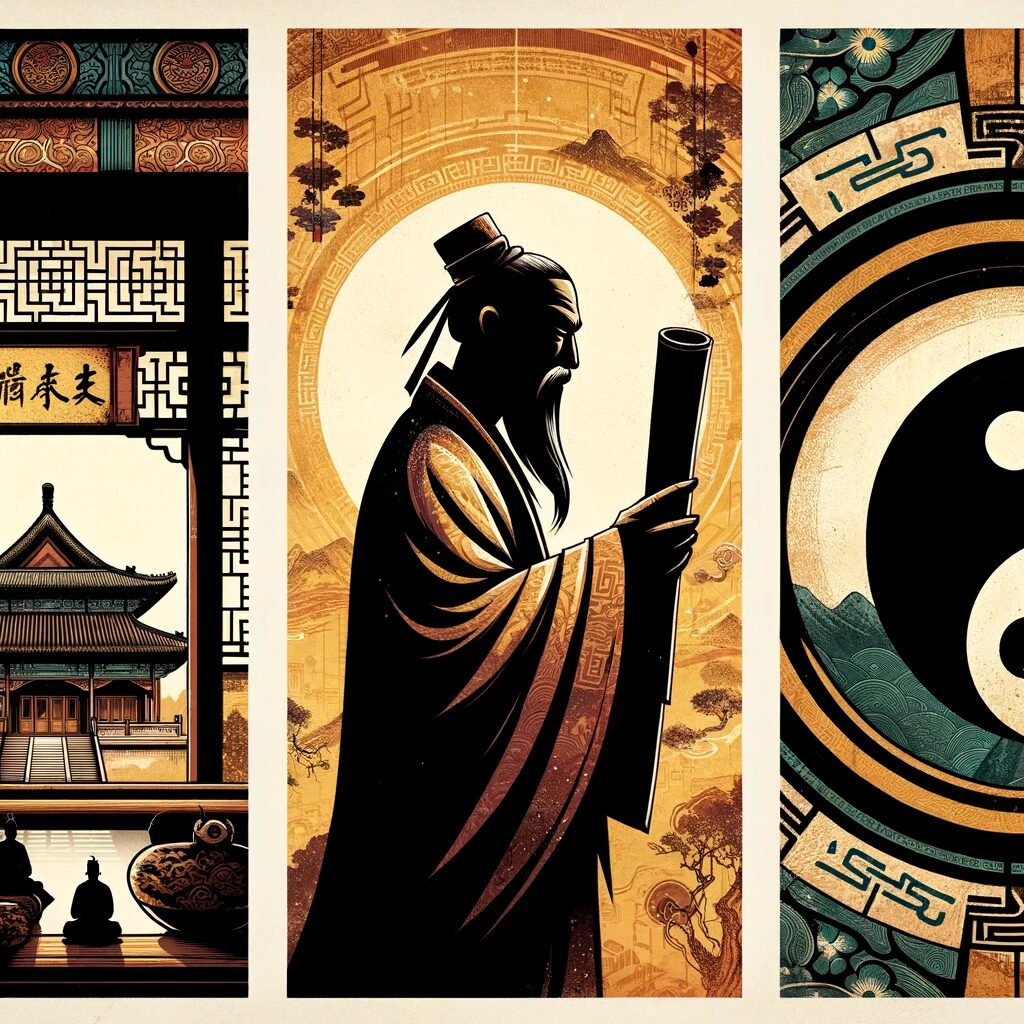Confucius
“It doesn’t matter how slowly you go, as long as you don’t stop.”
The speed at which you are going is less important than
continuing to make progress and not giving up.
Even if you feel like you are making little progress, you will eventually get there if you keep working towards your goal.
In other words, this statement teaches us that even when progress seems slow, persistence and perseverance will eventually help us reach our goals!
Confucius Brief personal history
Confucius, also known as Kong Qiu, was a Chinese philosopher and politician from 551 BCE to 479 BCE.
Many people think of him as one of the most influential people in Chinese history, and his ideas have significantly impacted Chinese culture and society.
Confucius was born in the town of Qufu in Lu, which is located in present-day Shandong province, China.
His father, Kong He, was a military officer in Lu, and his mother, Yan Zhengzai, came from an aristocratic family.
According to legend, Confucius was born in a house with a well in its courtyard, which was said to have been filled with water from a sacred spring.
This was seen as a good omen, and Confucius was believed to have been destined for greatness from birth.
As a child, Confucius was said to be educated and intelligent, and he developed a love for learning and education at a young age.
He studied under several prominent teachers in his youth, and by the age of 19, he had married and started a family.
In his early twenties, Confucius began his career as a government official in Lu, serving in various positions in the Lu court over the years.
But the corruption and political chaos at the time made him lose hope, and he eventually quit his government job to focus on teaching and philosophy.
Confucius spent the rest of his life traveling throughout China, teaching students and followers his philosophy and political ideas.
Confucianism is the name for what he taught, which stressed the importance of ethics, morality, and social responsibility.
Confucius was admired for his teachings, but he didn’t have much political power during his life.
He died in 479 BCE, at the age of 72, in relative obscurity. But his ideas and teachings lived on, shaping Chinese culture and society for hundreds of years.
Episodes.
One of the most famous episodes in the life of Confucius is the story of his encounter with the infamous bandit Ji Kangzi.
The story goes that when Ji Kangzi and his group of thieves came after Confucius and his followers, he led them through a forest.
Ji Kangzi was known for his brutality and violence, and his reputation had struck fear into the hearts of many travelers.
But Confucius didn’t lose his cool. Instead, he stayed calm and started talking to Ji Kangzi.
Even though Ji Kangzi was angry at Confucius and his followers at first, Confucius’s wisdom and charisma won him over, and he became more and more interested in learning from him.
Over several hours, Confucius spoke with Ji Kangzi about the importance of ethics, morality, and social responsibility, and he convinced him to abandon his life of crime and violence.
After their conversation, Ji Kangzi and his band of robbers decided to follow Confucius and become his disciples.
They studied his teachings and tried to live a good life.
Eventually, they became known as some of the most devoted Confucianists.
This story often shows how Confucius persuaded and inspired people, even when things were hard.
It also shows how much he wanted to teach and share his philosophy, even with people who were looked down upon.
The Teachings of Confucius
Confucius is known for his many teachings and ideas, profoundly impacting Chinese culture and society. While some of his ideas can be found in other philosophical traditions, several instructions are unique to Confucianism. Here are a few examples:
These are just a few examples of the unique teachings of Confucius that continue to impact Chinese culture and philosophy profoundly.



コメント